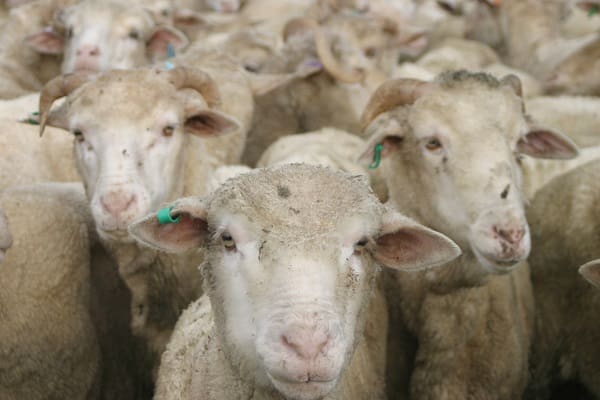
Mandatory pain relief for the surgical mulesing of sheep is being proposed in Victoria.
VICTORIAN sheep producers will risk on-the-spot-fines and penalties when they mules a sheep or lamb without pain relief after December this year, if draft regulations released this week are adopted.
Under the draft Prevention of Cruelty to Animals regulations, a person must not mules a sheep unless using a pain relief product registered for use on sheep by the Australian Pesticides and Veterinary Medicines Authority.
Mulesing a sheep without pain relief would risk an on-the-spot fine and additional court penalties. If adopted, the draft regulations would apply from mid-December this year, although the Victorian Farmers Federation is supporting a 12-month transition period for producers on mulesing pain relief uptake.
Mulesing is the removal of excess skin around a sheep’s breech to protect sheep against flystrike. It is often done with the application of post-operative formulations that relieve the pain of the operation.
The new regulations would also mean authorised officers from Victoria Police, government departments, the RSPCA, councils and the Game Management Authority will be able to investigate if pain relief is being used by producers mulesing sheep.
The move to mandate pain relief for mulesing in Victorian legislation has been supported by the Victorian Farmers Federation’s Livestock Group, but the RSPCA today declared that “time is running out for mulesing.”
VFF Livestock Group president Leonard Vallance said the intent of supporting the new pain relief regulation was to enable department officers to investigate rather than the RSPCA and other officers.
With Australia’s wool brokers also supporting the mandatory pain relief for mulesing policy of WoolProducers Australia, Mr Vallance said industry action on the issue was still in front of regulation.
“That’s why we went out and did what we did, to be in front instead of being told what should happen.”
The draft regulations also include new rules on the transport of farm animals, the shearing of sheep with overgrown wool, use of Oxy-LPG devices to empty rabbit warrens and the banning of public use of dog training collars.
Under the draft regulations, a person must not allow the fleece of a sheep to grow to a length greater than twice the average annual growth for the breed of sheep or more than 250mm (whichever is shorter).
Victoria’s Department of Jobs Precincts and Regions is inviting submissions on the draft regulations up to September 26, but published them on the Engage Victoria website this week without the usual media release or Minister’s statement. Feedback will be considered in September and October, with the regulations scheduled to into operation on 14 December 2019.
Time running out for mulesing – RSPCA
The RSPCA today declared that “time is running out for mulesing” as it welcomed the Country Road Group and David Jones to use only wool from flocks certified as non-mulesed or having ceased mulesing.
The retailers have committed to using only fleece from flocks verified as not mulesing or as having ceased mulesing in their pure wool products sold in stores by winter 2021 and by 2023, all wool-rich products sold in their stores will only use verified NM or CM-declared wool.
RSPCA Australia’s senior scientific officer for farm animals Melina Tensen said the decision from two of Australia’s largest fashion retailers is further evidence that the community does not support mulesing of sheep – “a procedure that can cause significant pain and distress to the animal.”
“Whilst the recent move from industry to supporting mandatory pain relief for mulesing is a positive first step, it is simply not enough to address the significant animal welfare issues associated with mulesing,”
“Breeding sheep that are not susceptible to flystrike and that do not require mulesing is the solution.
“As this decision from the Country Road Group and David Jones has shown, consumer attitudes are going to drive this change – it’s in the industry’s best interests to be ahead of the game and to lead this move away from mulesing sooner rather than later.”
Click here to read the draft POCTA regulations and answer a short survey.
Click here to read the POCTA regulatory impact statement.

HAVE YOUR SAY